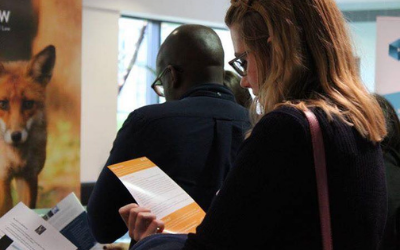By Denise Ho, student at Durham University
Following the outbreak of Covid-19, regulations in China have attracted a great deal of attention. The main piece of legislation governing China’s use of its environment is called The Law of the People’s Republic of China on the Protection of Wildlife (1988). This act expressly states its aim of protecting species that are rare or near extinction, and it pledges to use natural resources rationally. Also, the act highlights a need for China to maintain its ecological balance, with provisions prohibiting the illegal hunting, catching, or destruction of wildlife. Notably, this act affords extreme discretion to provincial governments in developing wildlife protection laws – discretion which the government of the Wuhan province availed itself of, following the pandemic outbreak in late 2019.
The local government implemented several changes. On January 1, 2020, the Huanan Seafood Wholesale Market was closed by official order. According to the China Center for Disease Control, this wet market was adjudged the ground zero of the virus outbreak. By the end of January, the Chinese government issued a national order to halt the sale of live animals. On May 13, Wuhan adopted a policy that banned the hunting and consumption of wildlife, forbidding the ingesting of all wild land animals and specific protected aquatic species. It further prohibited all organisations and individuals from producing, using, or conducting commercial trade involving wildlife and wildlife products. Artificial breeding of wild animals for consumption also fell under this ban.
In upholding these new regulatory actions, the government of Wuhan took a strict, effective stance, even inhibiting citizens from encouraging or persuading their peers to eat or conduct illegal trading of wildlife. Anyone who breaches the policy is subject to a penalty via the National Social Credit System, which not only punishes offending individuals but results in the creation of a permanent record. To ensure compliance, the government of Wuhan increased the number of sanctioned private and commercial inspections.
Also, Wuhan has agreed to participate in a national plan to buy out breeders of wildlife and exotic animals. This includes shutting down bamboo rat, snake, porcupine, deer, and civet breeders. As the affected businesses would suffer from loss of income – in 2018 alone, China earned 10 billion yuan in wildlife breeding revenue – shuttered businesses can claim compensation from the government (though farmers have reportedly expressed frustration at the scheme).
But economic concerns are not the only shortcoming. Although the consumption and hunting of wildlife has been made illegal, this is only a temporary mandate set to last for 5 years. More pressingly, as it stands the policy exempts the use of wildlife in scientific research, population regulation, monitoring of epidemic diseases, and other “special circumstances”. The vagueness of the last category has created a legal loophole that is exploited by fur farms and the traditional Chinese medicine sector. Although aware of this issue, the Chinese national government has not yet acted or addressed it, and in fact continues to promote the traditional medicine of bear bile as a cure for Covid-19.
Furthermore, wet markets still remain unregulated. In China, it is common place for wild animals to be kept alive in such markets, only being slaughtered upon a customer request. The animals are kept in dirty and cramped conditions, allowing for easy transmission of disease between the different animals. Furthermore, when animals are kept under great duress, vital pathogens can intermingle and mutate, making them more transmittable between species. This was how the SARS virus outbreak started and it’s believed that this is how Covid-19 began, yet wet markets continue to operate.
The struggle for improved animal welfare in China frequently collides with deep rooted cultural and culinary traditions, often reinforced by ancient literature touting unscientific beliefs. However, as a result of the current pandemic, the China Program for the Wildlife Conservation Society has reported the markings of a societal paradigm shift, stating its hope for the continual progression of wild animal welfare. In that vein, the banning of dog and cat meat in Shenzhen shows that the government is willing to adapt the law in response to social changes. Nevertheless, while the current policies have been successful in containing the virus, they were enacted for the benefit of humans, not to improve animal welfare. The side-effect of improvement for animals is a welcome one, but since it was not the goal, it threatens to be a temporary one. When the Wuhan policies expire in 5 years, that’s when we can determine if wild animal welfare in China will be a real, long-term effort.
Sources
Article 1 Law of the People’s Republic of China on the Protection of Wildlife 1988
Article 8 Law of the People’s Republic of China on the Protection of Wildlife 1988
Article 30 Law of the People’s Republic of China on the Protection of Wildlife 1988
Thompson, B., (2020), ‘Wuhan Bans Eating Wild Animals: 5-Year Rule Brought in After Global Coronavirus Pandemic was Linked to City’s Wet Market’, DailyMail, Available at: https://www.dailymail.co.uk/news/article-8340725/amp/Wuhan-BANS-eating-wild-animals-five-years.html
Myers, S.L, (2020), ‘China Vowed to Keep Wildlife Off the Menu, A Tough Promise to Keep’, The New York Times, Available at: https://www.nytimes.com/2020/06/07/world/asia/china-coronavirus-wildlife-ban.html
CBS, (2020), ‘Wuhan Bans Eating Wild Animals as Corona Virus Drives a Crackdown in China’, Available at: https://www.cbsnews.com/amp/news/wuhan-china-coronavirus-bans-eating-wild-animals-breeding-wet-markets/#app
Robert G Webster, ‘Wet Markets- A Continuing Source of Severe Acute Respiratory Syndrome and Influenza?’, (2004), 363(9404): 234-236
Maron, D. F., (2020), ‘Wet Markets likely launched the coronavirus. Here’s what you need to know’, National Geographic, Available at: https://www.nationalgeographic.co.uk/science-and-technology/2020/04/wet-markets-likely-launched-coronavirus-heres-what-you-need-know/amp
Standaert, M., (2020), ‘China Signls End to Dog Meat Consumption by Humans’, The Guardian, Available at: https://www.theguardian.com/environment/2020/apr/09/china-signals-end-to-dog-meat-consumption-by-humans
Denyer, S., (2018), ‘China’s Bear Bile Industry Persists Despite Growing Awareness of the Cruelty Involved’, The Washington Post, Available at: https://www.washingtonpost.com/gdpr-consent/?next_url=https%3a%2f%2fwww.washingtonpost.com%2fworld%2fasia_pacific%2ffrom-hemorrhoids-to-hangovers–bears-bile-is-treasured-in-china-and-thats-bad-for-captive-bears%2f2018%2f06%2f02%2ffdb431da-5363-11e8-b00a-17f9fda3859b_story.html







